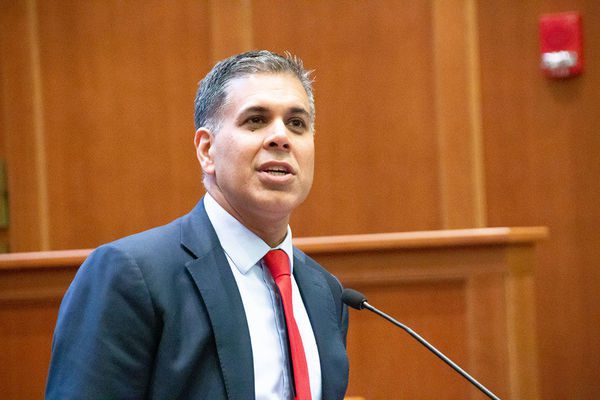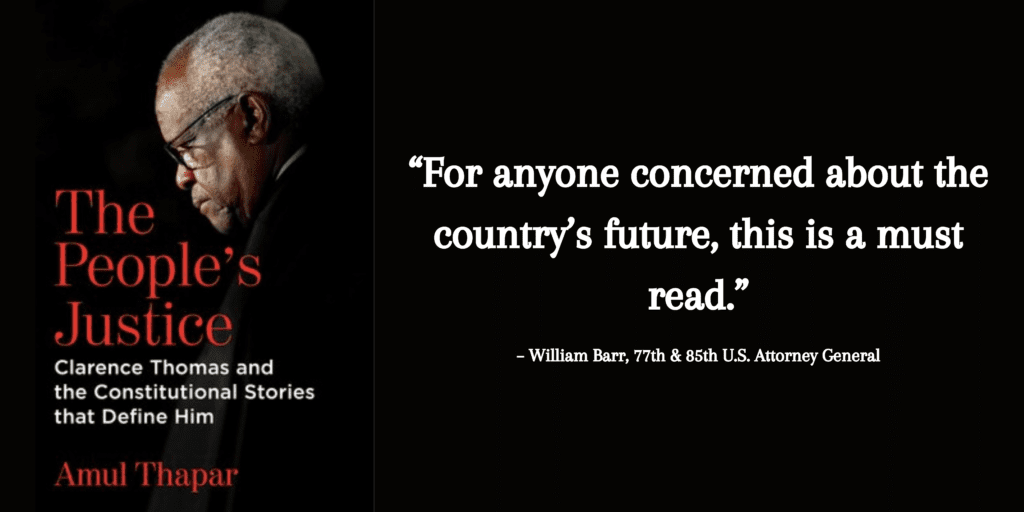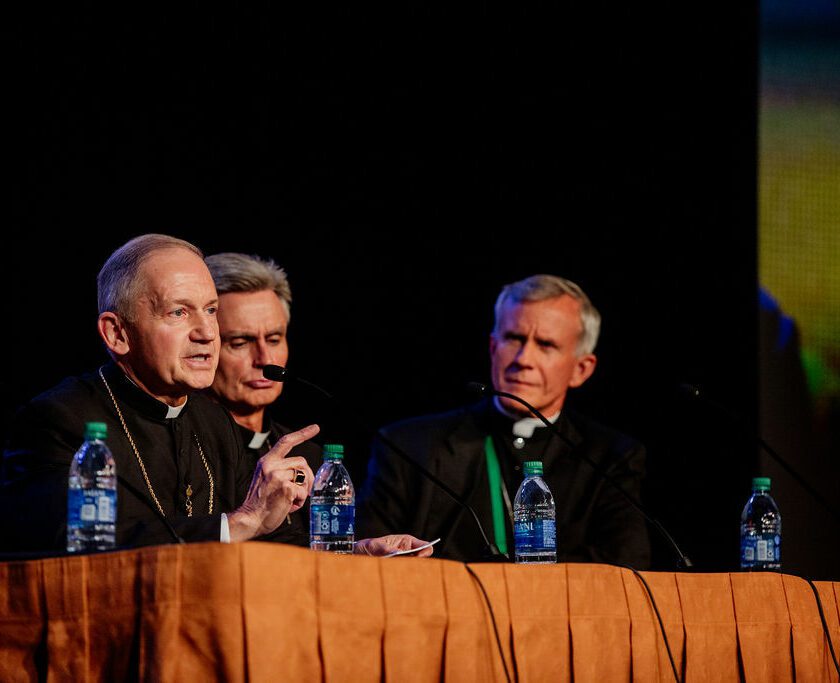‘The People’s Justice’: Catholic Judge Chronicles Clarence Thomas’s Pivotal Cases
“I think it’s important to understand Justice Thomas, the human being, a little bit how he’s not a robot, right? He’s an originalist who’s a human being, and he loves people. He cares passionately about people. And this is lost on his critics because they won’t tell these stories.”
We recently had the privilege of interviewing Judge Amul Thapar, an attorney and jurist who currently serves as a United States circuit judge on the United States Court of Appeals for the Sixth Circuit. As a fellow Catholic, we engaged in a conversation about his latest book, titled “The People’s Justice: Clarence Thomas and the Constitutional Stories that Define Him.” The book’s relevance becomes evident in light of the recent overturning of Roe v. Wade and the verbal attacks aimed at the Integrity of numerous Supreme Court justices, many of whom happen to be Catholic.
Judge Thapar’s book delves deeply into Clarence Thomas’s jurisprudence, shedding light on his profound convictions and sincere empathy for humanity. Through the exploration of pivotal cases, Thapar vividly portrays Thomas as a jurist fueled by a resolute commitment to justice and originalism. The book masterfully presents Justice Thomas as a compassionate force within the legal system, with his originalist perspective acting as a shield to preserve the constitutional rights of the American people.
Judge Thapar shared the following insights with us regarding his decision to write this book:
“I focused on Justice Thomas because I think there’s such a misperception out there. His critics have often tarred him as favoring the big guy over the little guy, favoring the rich over the poor, the strong over the weak, the corporation over the consumer, when in fact he does what the law compels. And often that means the opposite is true. Rather than tell people that, I laid out what I thought in the introduction and conclusion, but in between are the stories of the cases. And I let the reader judge for themselves. In fact, when it’s important, I quote Justice Thomas directly and I put everything he does in the context of stories. It was a fascinating opportunity to really study his jurisprudence. One thing I found is Justice Thomas cares passionately about the real people in front of him. And I think that comes shining through in the book. That’s why the name came about towards the end: ‘The People’s Justice’.”
Similar to any other legal or political situation, stories often undergo the game of ‘telephone,’ gradually shedding elements of truth and ultimately presenting an entirely divergent narrative. Justice Thomas, a man of faith, has faced substantial scrutiny both as a justice and a Catholic. However, Judge Thapar adeptly presents the story’s facts, allowing readers to form their independent judgments.

Thapar shared with us his personal journey from Hinduism to Catholicism.
“My faith journey is an interesting one, to say the least. I grew up Hindu, and my parents were Hindu. When I was at Boston College, I began paying more attention to religion. I took a class with Peter Kreeft. While I always believed there was a God, I had not really thought about it a lot growing up. College brought it more in focus, but I remained a Hindu after college and through law school.
After law school, I was clerking for a federal judge, and his judicial assistant started talking to me about Jesus. She said, ‘Amul, do you think Jesus lived?’ And I said, ‘Of course.’ She continued, ‘Do you think he was crazy?’ I replied, ‘No, I wouldn’t think he was crazy.’ Her next words stayed with me, ‘Well, he either has to be crazy, or you have to believe that when he says the only way to heaven is through Him.’ I contemplated that and prayed about it, and eventually, I converted to Christianity. I was a non-denominational Christian, finding my way through the faith.
During this period, I also met my wife, who was a cradle Catholic. That period was very enlightening. When we got married, she did not insist that I convert. She probably knew I was not ready for it. Nevertheless, our wedding took place in a Catholic church, officiated by a priest from Boston College, in the beautiful Mother of God church in Covington, Kentucky.”
In sharing the importance of his faith and the role his wife played in his conversion, he was moved to tears.
“I think her letting me do it on my own terms was really important because now we’re partners.
“Don’t get me wrong, my wife lays down the law. We go to Mass every Sunday— that’s just non-negotiable. There are certain things that are very non-negotiable with my wife. But it’s interesting even watching her challenge our kids as they grow older. I love all of them and enjoy watching their journey. The youngest (who is the only one still in high school) is a great athlete and singer (talents he got from my wife)—but I love that he wears his cross outside his shirt. You know, in today’s society, just to do that sends a message. And that’s my wife. You know, she wears it on her sleeve, and I’ve learned so much from that. But her not forcing me but rather letting me become a Catholic on my terms made it so much stronger for me.”
Speaking with Judge Thapar, it is evident that his passion for justice and truth in the American legal system is unmatched to his love for God.
God, the epitome of just judgment and advocate for righteousness, bestows upon Catholic members of the legal system the chance to manifest His justice and truth, offering a taste of these virtues in their service to humanity. Judge Amul Thapar takes this task seriously, and highlights the same sense of duty held by Justice Clarence Thomas.
Grab a copy of The People’s Justice on Amazon or at Regnery Publishing. To

Praise of The People’s justice
“For anyone concerned about the country’s future, this is a must read.” – William Barr, 77th & 85th U.S. Attorney General
“Amul Thapar sets the record straight with this can’t-put-down series of stories that reveal the courage, decency, and humanity of the man behind what many are calling the Thomas Court.” – Megyn Kelly
“A unique and fascinating book that reveals the character and judicial conduct of Justice Clarence Thomas …” – Edwin Meese III, 75th U.S. Attorney General

